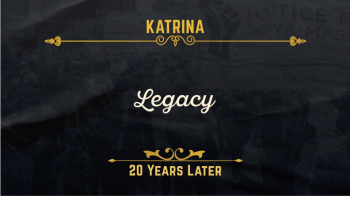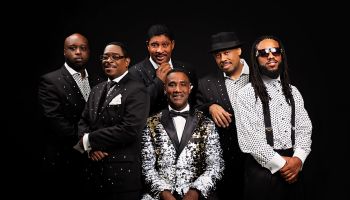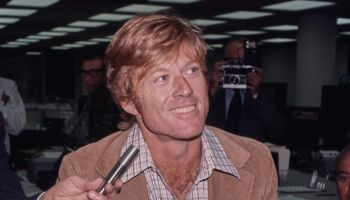A Muslim Democratic Socialist Mayor, An Africana Studies Degree
When A Muslim Democratic Socialist Mayor Has An Africana Studies Degree

The right is losing its collective mind again, and it’s been delightful to witness.
This time, they’re imploding over Zohran Kwame Mamdani, the Ugandan-born, South African–raised, Queens-bred Muslim Democratic Socialist who has been elected mayor of New York City. For the pundit class that’s spent years fearmongering about affirmative action, Critical Race Theory, DEI, and Marxism in the classroom, Mamdani’s victory is their nightmare made flesh.
Brown skin.
African name.
Muslim faith.
Socialist politics.
And, perhaps most scandalous of all, he has a bachelor’s degree in Africana Studies from Bowdoin College.
If the phrase “Muslim Democratic Socialist” already makes conservative pundits sweat, then “Africana Studies,” like Black Studies, is the accelerant. Because that degree doesn’t just signify what Mamdani studied, it signals how he thinks, what he values, and whose histories he centers, and how he may govern New York City. It’s a reminder that higher education can still produce the kind of leaders white supremacy was designed to prevent.
The right-wing media have already cast him as a symbol of everything they think is wrong with modern America. He’s too woke, too global, too intellectual, too brown, too Muslim, too socialist, too everything. They see a man born in Uganda, raised partly in post-apartheid South Africa, and educated in the United States, and they don’t see the promise of a biracial democracy. They see the death of their dominance.
But to understand why Zohran Mamdani rattles them, you have to understand what Africana Studies is and why the American right has spent decades trying to destroy it. Most journalists and pundits have no clue what Africana Studies is beyond course catalogs or diversity buzzwords, and they don’t respect it as a legitimate scholarly field. But it is a living tradition, a philosophy, a method of survival, and a political education.
While at Bowdoin College between 2010 and 2014, Zohran Mamdani would have moved through one of the richest and most politically charged Africana Studies environments in the country. The department wasn’t a collection of detached theorists. It was a circle of scholar-activists interrogating power from every angle, including race, empire, religion, gender, and the colonial imagination. These were the minds shaping his.
He would have encountered Brian Purnell, whose courses on racism, urban inequality, and affirmative action tore down the polite fictions of post-racial America and replaced them with the raw material of policy and protest. It’s easy to imagine Mamdani, even then, recognizing in those lessons the blueprint for how structural inequities operate. These insights would later shape his housing, policing, and economic justice policies in New York.
Judith Casselberry was examining how Black women made spiritual power out of survival, teaching that freedom work doesn’t always look like marching, but it can sound like a gospel chord or a quiet refusal. Mamdani could have absorbed the lesson that resistance isn’t only public or loud, but it’s sustained through the everyday acts of care, dignity, and defiance that hold communities together, the same moral rhythm that now undergirds his politics.
Tess Chakkalakai was digging into 19th-century Black literature and theology, tracing how faith, fiction, and freedom were entangled long before the term intersectionality ever hit a syllabus. Through this lens, Mamdani would have seen how narrative and moral imagination can be tools of liberation. This sensibility now informs the storytelling and moral clarity at the center of his political vision.
Olufemi Vaughan, now at Amherst College, was mapping the politics of Nigeria, showing how religion, migration, and the colonial state fused into modern governance. These are lessons that resonate deeply in the political worlds Mamdani now navigates, where he confronts the same entanglements of faith, power, and state control. The colonial logics Vaughan traced abroad still shape the inequities he fights at home.

Hanétha Vété-Congolo brought the Caribbean and Francophone Africa into the room, turning the idea of “Blackness” into something fluid, global, and multilingual. From this perspective, Mamdani could have drawn an understanding of solidarity that transcends borders and language. This is a worldview that now informs his insistence on linking local struggles in New York to global movements for justice.
And David Gordon, in the history department, offered the historical spine by walking students through the moral geography of Central and Southern Africa, where resistance, spirituality, and empire collided long before “globalization” became a buzzword. This scholarly work would have grounded Mamdani in the long arc of struggle by teaching him that every modern injustice has an ancestry, and that liberation requires both memory and movement.
The courses themselves read like a blueprint for the politics Mamdani would one day embody: Racism, Affirmative Action and United States History, The History of African Americans 1619–1865, African Civilizations to 1850: Myth, Art, and History. These weren’t just electives for padding a transcript. They were weapons for understanding how systems throughout the Diaspora are built and how they break. Students in these courses would learn frameworks, how to recognize imperial logic, decode racial capitalism, and see Africa not as a site of pity but as the cradle of philosophical and political complexity.
So when people now ask how a Ugandan-born, South African-raised, Indian-descended Muslim from Queens could emerge as one of the most fearless Democratic Socialists in American politics, the answer is right there in the classrooms of Bowdoin’s Africana Studies Department.
Mamdani was trained by thinkers who made him see empire as a living organism, capitalism as a theology, and liberation as a daily discipline. Those seminars and archives didn’t just educate him; they armed him. They gave him the language, the lineage, and the audacity to look white supremacy in the face and have the audacity to legislate.
For those of you who don’t know, Africana Studies is a field born from the Black freedom struggles of the 1960s and ’70s.
Africana Studies is not about diversity for diversity’s sake. It is an intellectual revolt against the myth that Western civilization is the default setting for knowledge production. It teaches that history doesn’t begin with Europe, that slavery and colonialism aren’t side notes to progress, and that Black people are not objects of study but subjects of history.
Students in Africana Studies learn to interrogate power by understanding the construction of race, the machinery of empire, and the global reach of anti-Blackness. They read thinkers like Frantz Fanon, Angela Davis, W.E.B. Du Bois, Sylvia Wynter, Walter Rodney, and bell hooks. They learn how domination works and how liberation is organized.
So when someone like Mamdani earns that degree and then runs for mayor of the largest city in the country, it’s a bold declaration. His education is not separate from his politics; it is his politics.
Africana Studies doesn’t produce technocrats or career politicians. It produces people who understand that oppression is global, that justice requires imagination and solidarity, and that equality can’t be achieved by simply managing inequality more efficiently.
Mamdani’s biography is itself a rebuke to American parochialism. Born in Kampala, Uganda, in 1991, he spent several years of his childhood in Cape Town, South Africa, during the fragile, hopeful years after apartheid’s fall. He moved to Queens, one of the most diverse places on Earth, where he grew up surrounded by immigrants, Black Americans, Latinos, and working-class families of every creed.
Mamdani’s father, Mahmood Mamdani, is one of Africa’s most respected scholars whose books on colonialism, race, and postcolonial governance are foundational texts in African Studies. His mother, Mira Nair, is an award-winning filmmaker whose work bridges India, Africa, and the diaspora. And so, his complex intellectual heritage is Ugandan, Indian, cinematic, and scholarly.
For the right, that complexity is threatening. Their political imagination can’t handle a man who embodies so many worlds at once: African by birth, Muslim by faith, American by citizenship, socialist by conviction, and scholar by training. They’ve spent decades trying to flatten identity into binaries like citizen or foreigner, American or enemy, capitalist or communist, Christian or threat. Mamdani doesn’t fit any of them.
Mamdani is what the future actually looks like, and that’s precisely what terrifies them.
Every panic about Critical Race Theory, Black Studies, or Africana Studies, every book ban, every budget cut to ethnic studies programs, every assault on “DEI bureaucrats” is part of the long war against the intellectual traditions that produce people like Zohran Mamdani.

Africana Studies and its sister disciplines—Black Studies, Ethnic Studies, Women’s Studies—were never meant to be decorative. They were insurgents. They demanded that universities stop being finishing schools for empire and start being engines of truth. From their inception, these programs challenged America to reckon with the crimes it prefers to romanticize: slavery, genocide, colonialism, and the ongoing structures of racial capitalism.
So when conservatives attack “woke universities” and “liberal professors,” they are really attacking the possibility that education might create the kind of leaders who understand power too well to be controlled by it. They fear the graduates who can read the architecture of oppression and recognize its disguises in law, policing, economics, and media. They fear what happens when a student moves from theory to praxis and takes that knowledge out of the classroom and into City Hall and chambers of power, where injustice can be dismantled.
Mamdani’s political career is what Africana Studies looks like when it grows up. His policies as a New York State Assembly member, including tenant protections, immigrant rights, police accountability, and housing justice, were not radical departures from American ideals. They were radical returns to them.
Where traditional politicians talk about “the middle class,” Mamdani talks about the working class. Where others invoke God and flag, he invokes solidarity. Where the political establishment sees charity, he sees justice. These aren’t slogans, they’re the living vocabulary of a man trained to recognize structural violence and call it by its name.
And that’s what drives the right wild. They can’t caricature him as uninformed or emotional. He’s the intellectual they were warned about and the one who read the fine print of history and decided not to be polite about it.
Now, as mayor-elect of New York City, Mamdani’s rise is both prophetic and inevitable. America is already a multiracial democracy, but it’s still governed by a white racial imagination. His life, African-born, Muslim, American, educated in the Black radical tradition, represents what comes after that imagination finally collapses.
The right senses this shift and calls it an apocalypse. And make no mistake, their obsession with his religion, his skin, and his politics is not about misunderstanding him. It’s about recognizing him all too well. They know exactly what he represents: the fruition of everything they’ve tried to suppress.
As we face global crises, including climate catastrophe, migration, inequality, and authoritarianism, the frameworks of Africana Studies and Black Studies are not fringe. They’re absolutely essential. They teach us to see the connections between exploitation in the Global South and injustice in the Global North, between the plantation and the prison, between imperial conquest and domestic policy.
Africana Studies insists that liberation anywhere requires liberation everywhere. It reminds us that white supremacy is not a glitch in democracy but its oldest operating system. And it equips new generations of thinkers, artists, and public servants to imagine a different kind of world.
Zohran Mamdani is proof of concept. He stands at the intersection of global history, radical education, and civic engagement. His election is the logical result of what happens when the children of empire study its blueprints and decide to build something better.
Dr. Stacey Patton is an award-winning journalist and author of “Spare The Kids: Why Whupping Children Won’t Save Black America” and the forthcoming “Strung Up: The Lynching of Black Children In Jim Crow America.” Read her Substack here.
SEE ALSO:
50-Year Mortgages, Credit Score Changes And Black Economic Slavery
Zohran Mamdani’s Victory Speech Is The Motivation You Need Today
When A Muslim Democratic Socialist Mayor Has An Africana Studies Degree was originally published on newsone.com












